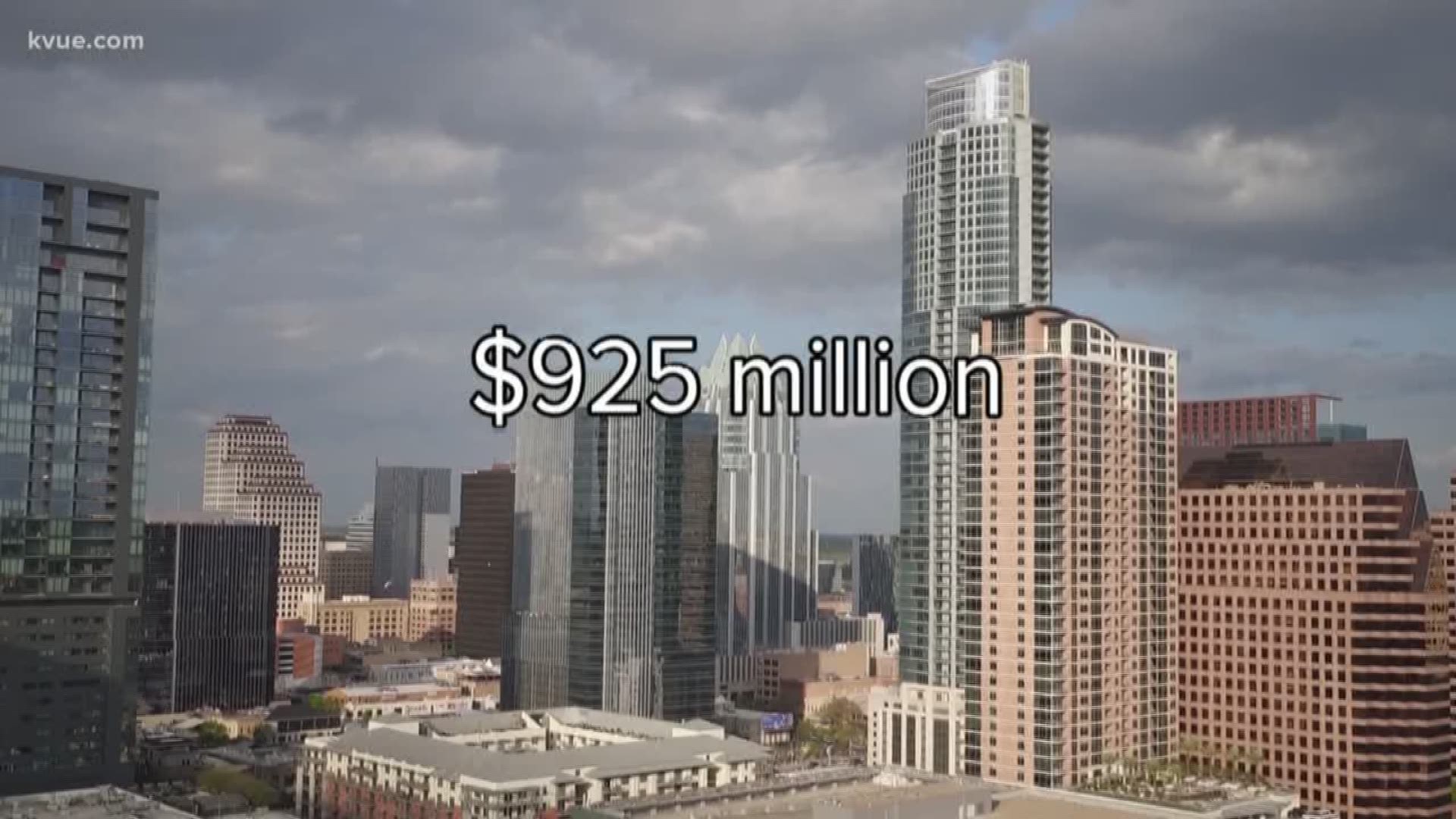AUSTIN, Texas — Austin consistently ranks as one of the best places to live, but many of the people who live in the Capital City know it has its challenges.
One proposed solution from the Austin City Council is the 2018 November bond package.
"It is a bond package, with these propositions that I think truly is a real statement about who we are and what we value," Austin Mayor Steve Adler said Wednesday at a kick-off for the Political Action Committee (PAC) Austin Together, which is asking voters to vote for all seven propositions.
RELATED | KVUE launches online voter guide
Each proposition will appear on the November ballot separately. The propositions are:
- Prop A - $250 million for affordable housing
- Prop B - $128 million for libraries and cultural centers
- Prop C - $149 million for parks and recreation
- Prop D - $184 million for flood mitigation and water quality protection
- Prop E - $16 million for health and human services
- Prop F - $38 million for public safety
- Prop G - $160 million for transportation infrastructure
The bonds total $925 million.
"There's a lot of spending here that is unnecessary. And you know we're spending hundreds of millions of dollars on affordable housing. What about the affordability of people's housing that are going to have to pay this bill and the rents that are going to go up in response," said Roger Falk, an Analyst for the Travis County Taxpayers Union.
Falk said some of the propositions include good projects. But at what cost?
If all the bonds passed, City of Austin staff estimate the owner of a median priced home, which is $320,000, would pay $5.33 more on their tax bill each month.
Mayor Adler and bond supporters liken it to a cup of Starbucks, but Falk argues over the life of the bond the cost will increase.
Voters will also see four additional propositions on the ballot. The first two are amendments to the city charter.
Proposition H would amend the city charter to state the term of service and process for removal of members of the Planning Commission would be determined by ordinance.
Proposition I seeks to make non-substantive corrections to grammar, typographical errors, capitalization, punctuation and sentence structure to the city charter and remove language that is obsolete.
The final two propositions are ordinances that are the result of citizen-initiated petitions.
The ordinance in Proposition J was initially sparked by Code Next, the comprehensive re-write of the city's land development code. On the ballot, Prop J will state:
Shall a City ordinance be adopted to require both a waiting period and subsequent voter approval period, a total of up to three years, before future comprehensive revisions of the City's land development code become effective?
Proposition K is the result of calls for an independent, third party audit of how the city spends tax dollars. On the ballot, Prop K will state:
Without using the existing internal City Auditor or existing independent external auditor, shall the City Code be amended to require an efficiency study of the City's operational and fiscal performance performed bu a third-party audit consultant, at an estimated cost of $1 million - $5 million?
The City Council was sued over the ballot language for Props J and K. The residents suing the city, who worked to get the petitions signed, argued the language was too suggestive and misleading. A judge ruled in the council's favor, deciding their language could be used.
Early voting for the November election begins Oct. 22. Election Day is Nov. 6.

